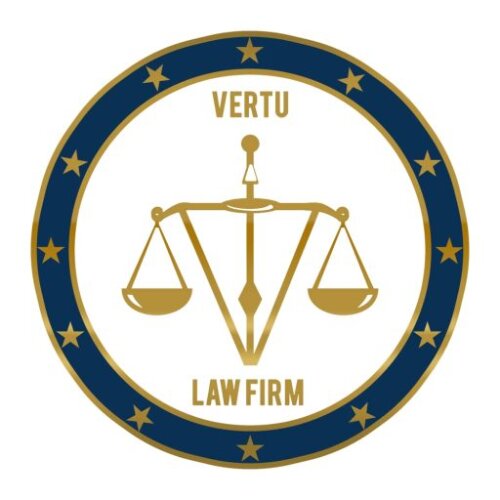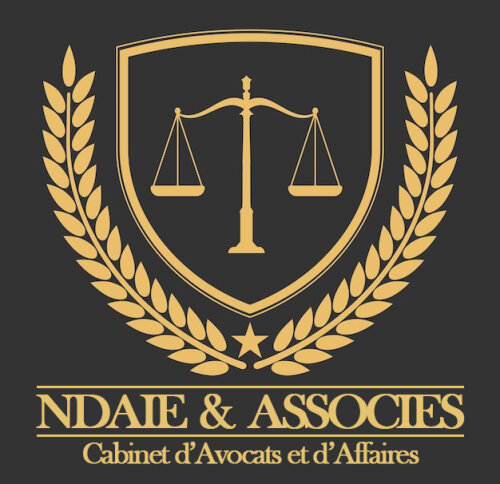Best Land Use & Zoning Lawyers in Lubumbashi
Share your needs with us, get contacted by law firms.
Free. Takes 2 min.
Free Guide to Hiring a Real Estate Lawyer
List of the best lawyers in Lubumbashi, DR Congo
About Land Use & Zoning Law in Lubumbashi, DR Congo:
Land Use & Zoning law in Lubumbashi, DR Congo regulates how land can be used and developed within the city. It encompasses regulations on the type of buildings that can be constructed in certain areas, the size and height of structures, and the allocation of land for different purposes such as residential, commercial, or industrial use. Understanding and complying with these laws is crucial for individuals, businesses, and government entities looking to develop or use land in Lubumbashi.
Why You May Need a Lawyer:
You may need a lawyer specializing in Land Use & Zoning in Lubumbashi if you are looking to purchase, sell, or develop property in the city. Some common situations where legal assistance may be necessary include obtaining permits for construction projects, appealing zoning decisions, resolving disputes with neighbors over land use, or seeking variances for zoning requirements. A lawyer can help navigate the complex laws and regulations governing land use and zoning in Lubumbashi to ensure compliance and protect your interests.
Local Laws Overview:
Key aspects of local laws in Lubumbashi related to Land Use & Zoning include zoning ordinances, building codes, environmental regulations, and property rights. Zoning ordinances designate specific zones for different types of land use, such as residential, commercial, or industrial. Building codes set standards for construction and renovation projects to ensure safety and structural integrity. Environmental regulations protect natural resources and regulate development in environmentally sensitive areas. Property rights govern ownership, access, and land use restrictions.
Frequently Asked Questions:
1. What is the zoning process in Lubumbashi?
The zoning process in Lubumbashi involves applying for permits from the local government to use or develop land in accordance with zoning regulations. This process may include submitting plans, attending public hearings, and obtaining approvals from zoning authorities.
2. Can I appeal a zoning decision in Lubumbashi?
Yes, you can appeal a zoning decision in Lubumbashi by following the procedures outlined in the local zoning ordinances. This may involve submitting an appeal to the zoning board or seeking legal remedies through the court system.
3. What are variances and how can I obtain one in Lubumbashi?
Variances are exceptions to zoning regulations granted by the local government in specific cases where strict application of the rules would cause undue hardship. To obtain a variance in Lubumbashi, you must demonstrate unique circumstances and meet certain criteria outlined in the zoning ordinances.
4. Are there restrictions on building heights in Lubumbashi?
Yes, there are restrictions on building heights in Lubumbashi to ensure compatibility with the surrounding environment and infrastructure. These restrictions are typically outlined in the zoning regulations for different zones within the city.
5. How can I find information on property rights in Lubumbashi?
You can find information on property rights in Lubumbashi by consulting the local land registry, property records, or seeking legal advice from a lawyer specializing in Land Use & Zoning law.
6. What are the penalties for violating zoning regulations in Lubumbashi?
Penalties for violating zoning regulations in Lubumbashi may include fines, demolition of unauthorized structures, or legal action to compel compliance with the law. It is important to understand and follow the rules to avoid penalties.
7. Can I subdivide land in Lubumbashi?
Yes, you can subdivide land in Lubumbashi, but you must comply with subdivision regulations and obtain approvals from the local government. Subdivision of land involves dividing a larger parcel into smaller lots for development or sale.
8. How can I protect my property rights in Lubumbashi?
You can protect your property rights in Lubumbashi by understanding your rights as a landowner, following land use regulations, maintaining proper documentation of ownership, and seeking legal advice if disputes arise.
9. Are there restrictions on land use for conservation purposes in Lubumbashi?
Yes, there are restrictions on land use for conservation purposes in Lubumbashi to protect natural resources, wildlife habitats, and biodiversity. These restrictions may include designated conservation areas, environmental impact assessments, and permits for development in sensitive areas.
10. How can I ensure compliance with local laws and regulations in Lubumbashi?
You can ensure compliance with local laws and regulations in Lubumbashi by consulting with legal experts, conducting thorough research on zoning ordinances and building codes, seeking necessary permits for development projects, and addressing any violations promptly.
Additional Resources:
For additional resources related to Land Use & Zoning in Lubumbashi, you may consult the Ministry of Urban Planning and Habitat, the Lubumbashi City Council, or local legal organizations specializing in property law. These resources can provide information, guidance, and support for navigating the legal landscape of land use and zoning in the city.
Next Steps:
If you require legal assistance in Land Use & Zoning in Lubumbashi, it is advisable to seek advice from a qualified lawyer with expertise in this field. A lawyer can help you understand your rights, navigate the complexities of local laws and regulations, and protect your interests when dealing with land use and zoning issues. Contact a legal professional today to discuss your specific situation and explore your options for legal representation.
Lawzana helps you find the best lawyers and law firms in Lubumbashi through a curated and pre-screened list of qualified legal professionals. Our platform offers rankings and detailed profiles of attorneys and law firms, allowing you to compare based on practice areas, including Land Use & Zoning, experience, and client feedback.
Each profile includes a description of the firm's areas of practice, client reviews, team members and partners, year of establishment, spoken languages, office locations, contact information, social media presence, and any published articles or resources. Most firms on our platform speak English and are experienced in both local and international legal matters.
Get a quote from top-rated law firms in Lubumbashi, DR Congo — quickly, securely, and without unnecessary hassle.
Disclaimer:
The information provided on this page is for general informational purposes only and does not constitute legal advice. While we strive to ensure the accuracy and relevance of the content, legal information may change over time, and interpretations of the law can vary. You should always consult with a qualified legal professional for advice specific to your situation.
We disclaim all liability for actions taken or not taken based on the content of this page. If you believe any information is incorrect or outdated, please contact us, and we will review and update it where appropriate.












